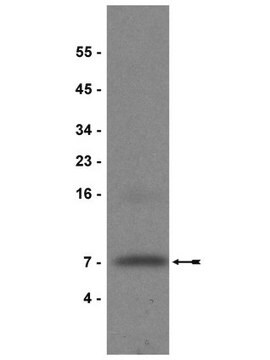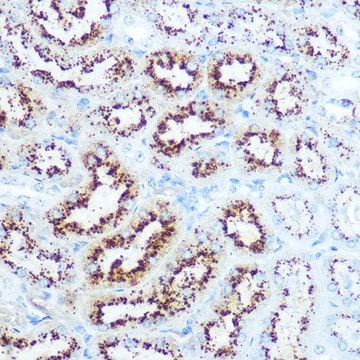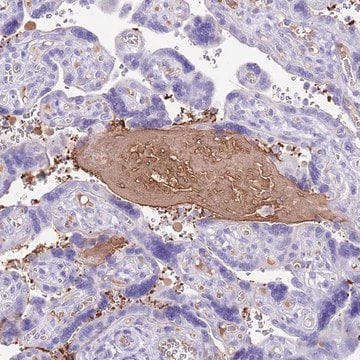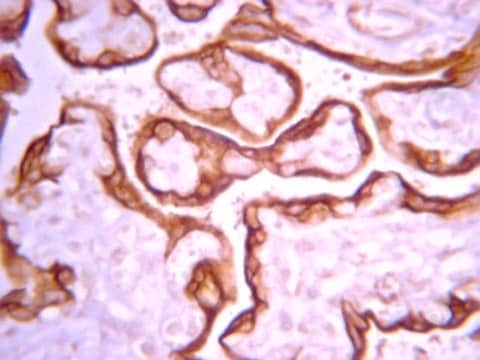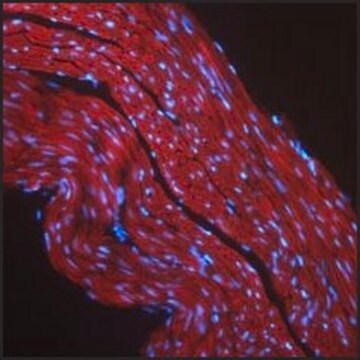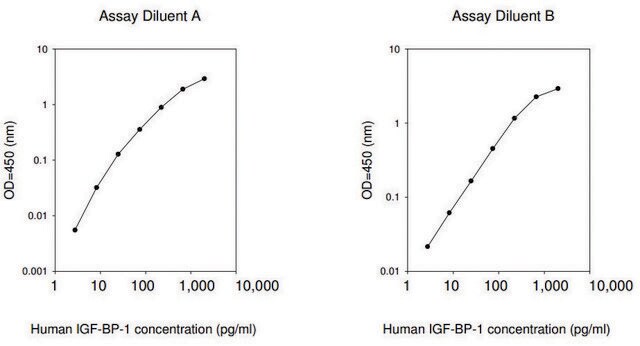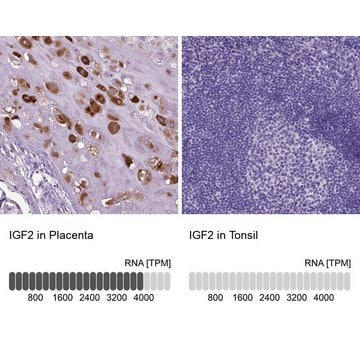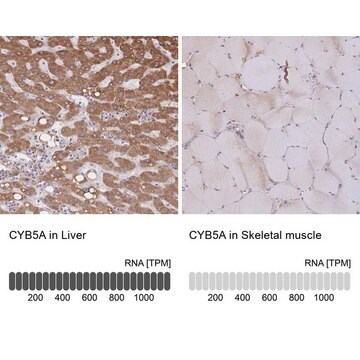SAB3600001
Anti-IGF-1 antibody produced in goat
affinity isolated antibody, lyophilized powder
Synonym(s):
Anti-Insulin-like Growth Factor-I
About This Item
Recommended Products
biological source
goat
Quality Level
conjugate
unconjugated
antibody form
affinity isolated antibody
antibody product type
primary antibodies
form
lyophilized powder
species reactivity
human
technique(s)
immunocytochemistry: 5-15 μg/mL
immunohistochemistry (formalin-fixed, paraffin-embedded sections): suitable
western blot: 0.1-0.2 μg/mL
application(s)
research pathology
storage temp.
−20°C
Gene Information
human ... IGF1(3479)
General description
Immunogen
Application
Biochem/physiol Actions
Physical form
Disclaimer
Not finding the right product?
Try our Product Selector Tool.
Storage Class Code
13 - Non Combustible Solids
WGK
WGK 1
Flash Point(F)
Not applicable
Flash Point(C)
Not applicable
Certificates of Analysis (COA)
Search for Certificates of Analysis (COA) by entering the products Lot/Batch Number. Lot and Batch Numbers can be found on a product’s label following the words ‘Lot’ or ‘Batch’.
Already Own This Product?
Find documentation for the products that you have recently purchased in the Document Library.
Our team of scientists has experience in all areas of research including Life Science, Material Science, Chemical Synthesis, Chromatography, Analytical and many others.
Contact Technical Service
